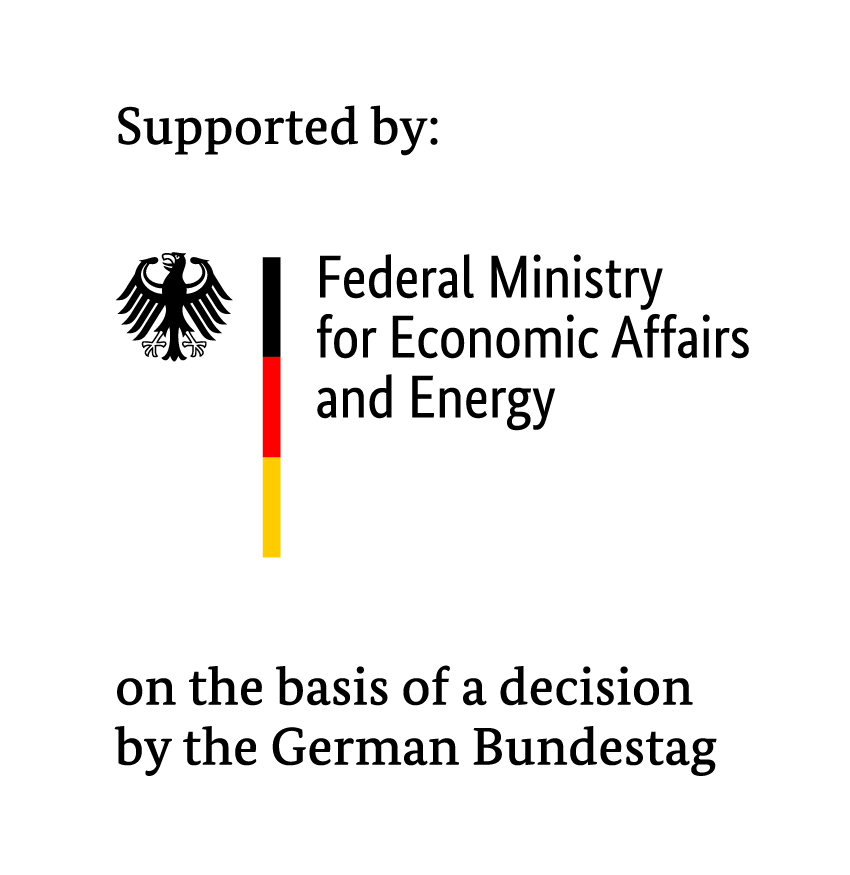EASyQuart-Plus
Energy-efficient design and planning of decentralised supply networks for geothermal heating and cooling of urban areas - digitalisation and practical effectiveness
Project title: Energieeffiziente Auslegung und Planung dezentraler Versorgungsnetze zum geothermischen Heizen und Kühlen von Stadtquartieren - Digitalisierung und Praxiswirksamkeit
(Project title – English translation: Energy-efficient design and planning of decentralised supply networks for geothermal heating and cooling of urban areas - digitalisation and practical effectiveness)
Motivation:
Urban areas and large building complexes will increasingly play a key role in the energy transition process and in achieving climate protection targets, as they have great potential for efficiency in the supply of thermal energy. According to the Umweltbundesamt, approx. 35% of total German final energy consumption is accounted for by space heating and hot water and is therefore suitable for supply by the geothermal energy of the shallow subsurface.
The shallow subsurface offers a base load-capable heat potential for urban heat energy supply. Optimising the operation of ground-source heat pump systems is therefore essential for achieving low primary energy consumption as well as an economically and ecologically sustainable use of geothermal resources.
For the optimisation of individual borehole heat exchangers (BHE), extensive experience and a wide range of literature are available. The current design practice for borehole heat exchanger fields is primarily based on the same documents (guidelines, directives, etc.) and legal frameworks that were created for the planning of individual systems. Neighbourhood solutions are therefore required that enable both optimised system dimensioning and efficient and sustainable operation of the systems.
Short project description:
The project aims to practically enhance and implement concepts, workflows, and instruments of a decision support system for heating and cooling buildings and neighbourhoods using the shallow-geothermal subsurface. Methodological preliminary work for system components and their validation was carried out in the EASyQuart project. The decision-making aids will be transformed from recommendations for action into a holistic set of digital instruments.This is based on workflows, algorithms, interfaces and software components that are used at an early stage in the planning of building and neighbourhood projects for feasibility studies and also in the actual dimensioning process. The implementation of project results in the digital twin of a real system will demonstrate the practical usability of the decision-making aids under real conditions at the site scale.
Furthermore, to address existing knowledge gaps, we will conduct thorough methodological analyses. Additionally, we will cover new topics such as enhancing the strategic communication of geothermal content to diverse target groups, integrating geothermal energy into comprehensive energy system analyses, and supplying existing buildings. With the concepts and instruments developed as exemplary solutions and with extended recommendations for making the regulatory framework more flexible, standards for the planning sector will be further developed and suggestions made for their safe implementation in practice. The subproject will further develop innovative methods for the coupled numerical simulation of complex processes in the subsurface and above-ground components of large-scale geothermal BHE systems. These will be incorporated as scientific contributions into the digital planning and decision support tools described above.
Project duration: 01/24 – 12/26
Funding organisation: BMWK

Project partners:
- geoENERGIE Konzept GmbH Freiberg
- heatbeat engineering GmbH Nürnberg
- Helmholtz Centre for Environmental Research – UFZ
- Leipzig University of Applied Sciences (HTWK) – coordinator
- Universität Leipzig
At the UFZ, research for this project is also being conducted at the Department Monitoring and Exploration Technologies.
At the Department of Environmental Informatics, research for this project is being conducted at the workgroup Geothermal Systems Analysis.
Project website: www.ufz.de/easyquart
This research was also part of the OpenGeoSys initiative (www.opengeosys.org).

